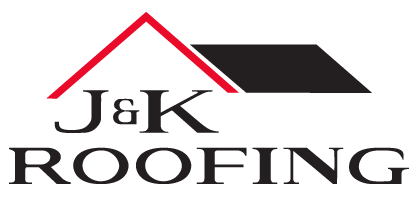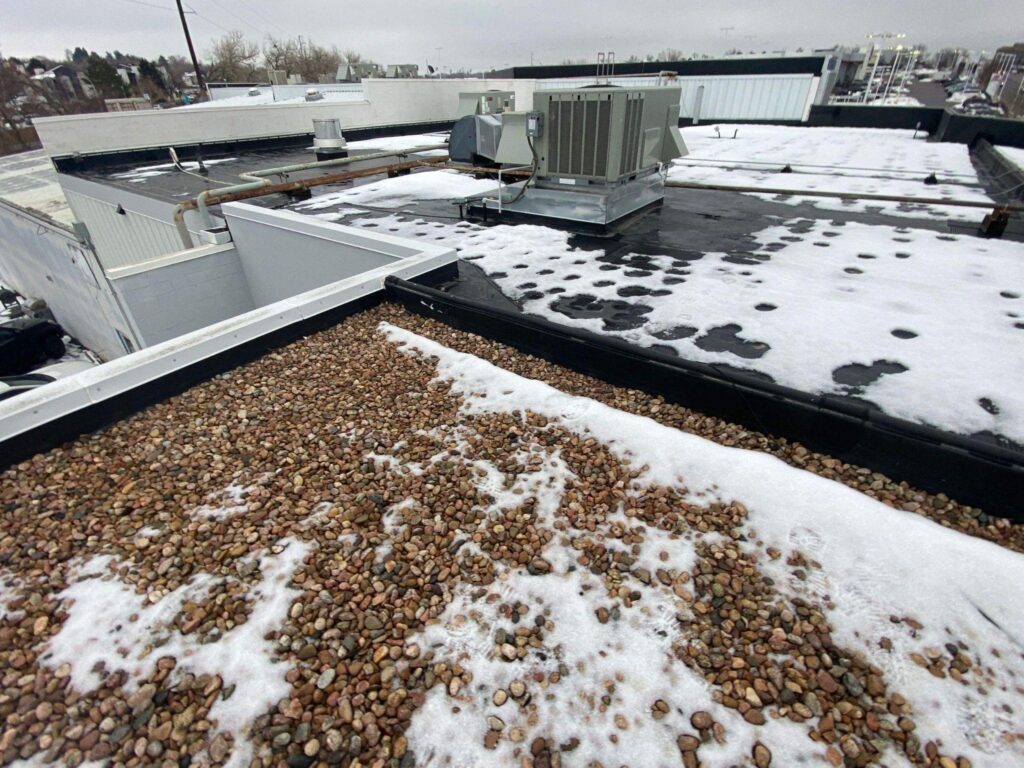Commercial Roofing Solutions: Maintenance, Repair, Replacement, and Solar Options
Your commercial roof is often one of your largest investments. That’s why it’s important to make sure it remains in good condition for as long as possible. You need to take care of routine maintenance, repairs, address replacement whenever necessary, and look for every opportunity to extend the life and quality of your commercial roof and building.
With the types of storms we get in Colorado — from strong wind and hail to heavy snowfall — you have to take commercial roofing seriously to ensure safety and reduce related costs. This article will offer a glimpse into commercial roofing solutions.
Commercial Roof Maintenance
If you’re not taking care of routine commercial roofing maintenance, then you’re running a major risk of serious damage to both your building and your business. So, when your commercial roof is damaged, due to age or storm damage, it’s important to act fast before the problem becomes worse.
The best way to extend the life of your roof is with a comprehensive preventative commercial roof maintenance plan. Commercial rooftops require an extensive inspection to identify problems on your building before making costly repairs.
A preventative commercial roof maintenance plan should include the following:
- Roof covering: This includes the TPO, EPDM and other materials that make up the roof’s surface. Look for cracks, tears, punctures, or other signs of damage.
- Flashing: Flashing is the metal or plastic trim that helps to seal around roof penetrations, such as chimneys, vents, and skylights. Make sure that the flashing is in good condition and free of leaks.
- Roof edge: The roof edge is the area where the roof meets the walls of the building. Check for damage to the edge, such as cracks, missing pieces, or loose nails.
- Drainage system: The drainage system helps to carry rainwater and melting snow away from the roof. Make sure that the gutters and downspouts are clean and free of debris, and that the drains are not clogged. Make sure to do timely snow removal in the winter, and watch for any sign of water ponding.
- Roof penetrations: Roof penetrations are any openings in the roof, such as vents, skylights, and chimneys. These openings can be a source of leaks, so it is important to check them regularly for damage.
- Structural components: The roof’s structural components include the trusses, beams, and other supports that hold the roof up. Check for signs of damage, such as cracks, rot, or rust.
- Insulation: Insulation helps to keep the building warm in the winter and cool in the summer. Make sure that the insulation is in good condition and that it is not damaged.
- Weatherproofing: Weatherproofing helps to protect the roof from the elements. Check for signs of damage, such as cracks, tears, or leaks around penetrations..
A good step to take is to schedule regular commercial roofing inspections, especially after strong storms that bring hail and intense winds. Doing so not only protects your commercial roof and your business, but it also helps you gain a better understanding of your commercial roofing system and how it works.
Commercial Roof Repairs
Your roof maintenance plan should include a schedule for regular inspections.
When your commercial roof needs repairs, you can’t afford to ignore them. That just makes matters worse and likely leads to a bigger bill when you finally address the repairs! You must take storm damage repair and storm damage restoration seriously.
Commercial roofing repairs include:
- Roof leak repair: Leaks are the most common problem with commercial roofs, and they can cause a variety of other damage including structural problems. Damage from weather, punctures or tears in the roofing material, and flashing issues are typically the culprits.
- Ponding water and Roof drainage (for flat roofs): Our Colorado climate can make it difficult for water to evaporate, which can lead to ponding water. Ponding water can put extra stress on the roofing material, leading to leaks and premature wear and tear.
- Strong winds: Strong winds can cause significant damage to commercial roofs, especially those with seams and other protrusions. The wind can grab onto these seam and protrusions and create lift, which can tear off roofing material.
- Issues with snow: As snow accumulates, it can cause pressure on commercial flat roofs due to the increase in weight. This can lead to leaks, damage to the roof structure, and even roof collapse. It is important to remove snow from commercial roofs regularly during the winter months.
- Debris: High winds and tornado bursts can send trees and large branches onto flat roofs, causing roofing membranes to crack and tear. It is important to regularly remove debris and check for any damage.
- UV ray damage: Colorado’s harsh sunshine and temperature swings can weaken roofing materials over time. This can lead to leaks and other damage.
- Pest damage: Pests such as rodents, birds, and insects can damage commercial roofs. They can chew on roofing materials, create nests, and leave droppings that can attract other pests.
- Flashing repair: Flashing is the metal or plastic material that is used to seal the joints between different parts of the roof. Flashing can become damaged over time, which can lead to leaks.
In particular, if you have hail storm damage in Colorado, you should schedule a commercial roofing inspection right away.
Commercial Roof Replacement
Sometimes repairs aren’t enough, and you might need a commercial roof replacement. Hopefully, such an event happens when you might expect: at the end of your commercial roof’s lifespan.
Regardless of when you’re expecting a total commercial roof replacement, you can be prepared for it by following the maintenance and repair tips in this article and obtaining regular inspections as needed. If your roof needs a roof replacement, make sure you go with a trusted local roofing contractor like J&K Roofing.
Commercial Roofing and Solar Technology
One of the most exciting features of commercial roofing is being able to take advantage of solar efficiency to help offset costs. A flat commercial roof is an optimal surface for installing solar panels, as there are few obstructions from sunlight and the flat surface is easy to work with.
If you’re interested in adding solar to your commercial roof, there are a lot of options available that can be designed to fit your roof based on things like building location and roof size. Get in touch with a certified, local roofing contractor like J&K Roofing to talk through the best options for your commercial roof.
Hire an Experienced, Cost-Effective Roofing Contractor
Whether you’re due for a total roof replacement, in need of repairs or solar installation, or you just need some help with commercial roofing preventative maintenance, J&K Roofing is the right choice for you.
J&K Roofing provides expert installation, application and repairs of commercial low slope roofs including TPO, EPDM, commercial asphalt roofs, and commercial metal roofs. If your commercial building is in the Northern Colorado, Denver Metro, Front Range, and Colorado Springs areas, we can help. Our team has experienced project managers and a seasoned and equipped service department. We’re ready to tackle any roofing project you may need completed! Call 303-425-7531 or get in touch with J&K Roofing on our website.

